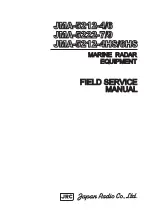
Smart Systems User’s Manual Version 1.1
75
Noggin 1000 System
Setting
Station Interval
Data per Screen
Short
0.5 cm or 0.24 in
3.2 m or 12.8 ft
Normal
1.0 cm or 0.48 in
6.4 m or 25.6 ft
Long
2.0 cm or 0.96 in
12.8 m or 51.2 ft
X-Long
5.0 cm or 2.4 in
32.0 m or 128 ft
Norm x10
10 cm or 4.8 in
64.0 m or 256 ft
Norm x20
20 cm or 9.6 in
128 m or 512 ft
Norm x40
40 cm or 19.2 in
256 m or 1024 ft
Norm x50
50 cm or 24.0 in
320 m or 1280 ft
Norm x100
100 cm or 48.0 in
640 m or 2560 ft
Note that Noggin 250 traces are plotted on the screen 2 pixels wide while traces from
the Noggin 500 and 1000 are plotted on the screen 1 pixel wide (see Section 6.2.7).
6.3.4
Grid Parameters
The Grid Parameters settings allow the user to view and modify settings specific to
collecting data in organized grids. This includes the grid dimensions, line spacing, grid
type and survey format.
Data are normally collected on a grid if the user is interested in displaying the data as a
3D volume (using the EKKO_3D software) or as a plan map (using the EKKO_Mapper
and/or EKKO_Pointer software). Producing accurate 3D volumes or plan maps is easier
if the field survey is properly designed and data are collected correctly.
Positional accuracy of each line is vital if the user wants to be able to relocate targets of
interest after the data have been processed.
For linear targets like pipes and utilities, the best GPR response occurs when the GPR
survey line crosses the target at right angles. If possible, it is always best to run GPR
survey lines perpendicular to the direction of linear targets.
Grid Type
The Grid Type asks specifically the way that the area of the grid is to be covered by the
survey lines. Survey lines can be either a set of parallel lines in the X axis direction
(Figure 6-6), a set of parallel lines in the Y axis direction (Figure 6-7), or, for complete
coverage, parallel lines in both the X and Y direction (Figure 6-8).
X Lines Only - Forward
Set up a first-quadrant XY grid. Data lines run in the X direction, distance increasing
from the Y axis baseline. Line numbers increase in the positive Y direction (see Figure
6-6). Lines must be equally spaced. It is not critical that all the lines are the same
length. However, it does make processing easier if all the lines start at the same
baseline position (usually defined as zero (0.0)).
















































